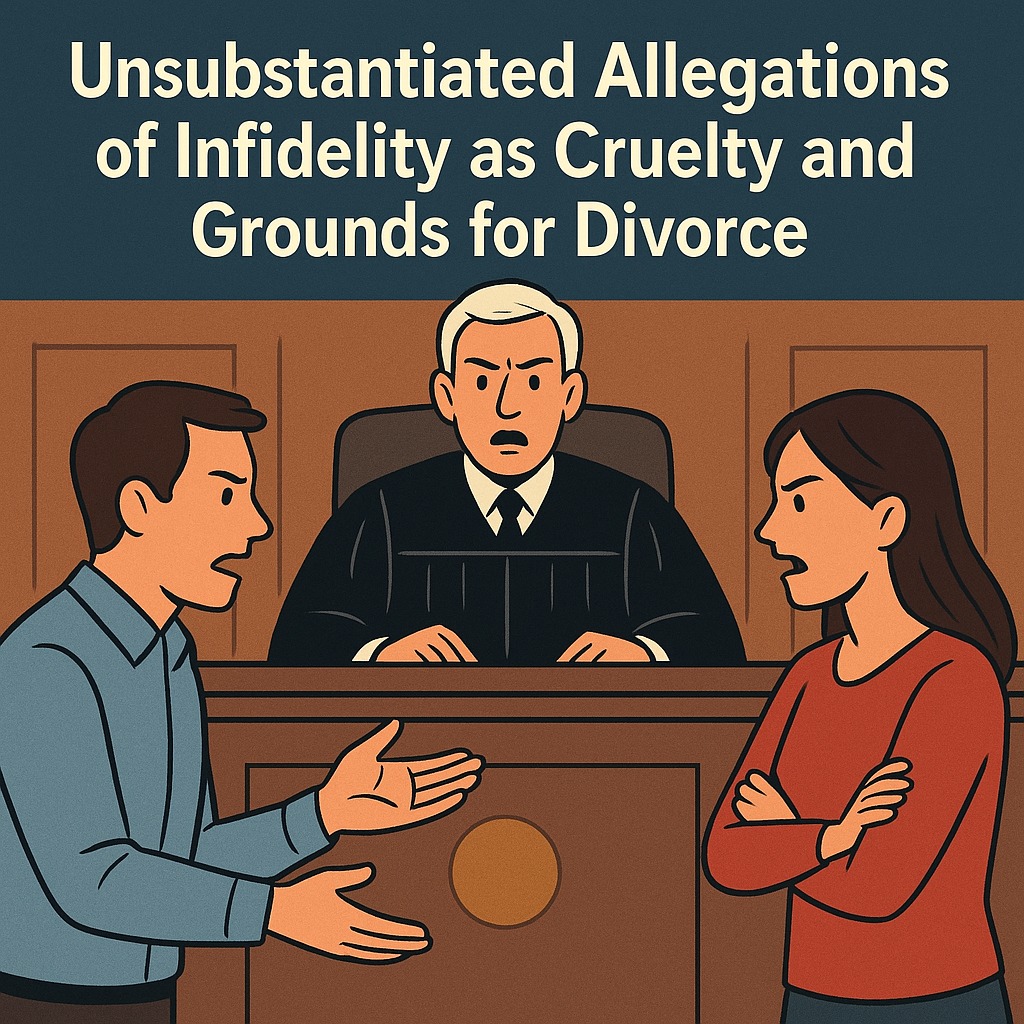Introduction
Marriage under Hindu law is considered as a sacrament based on mutual trust and respect for the spouse. It is governed by the Hindu Marriage Act, 1955.(HMA, 1955) Codification of the Hindu law through the HMA, 1955 has provided a mechanism for divorce under Section 13 of the HMA, 1955. Various grounds for divorce outlined under the HMA, 1955 include cruelty, desertion, infidelity, conversion etc.
Infidelity As A Ground For Divorce
Section 13(1)(i) of the HMA, 1955 states provides that infidelity is a ground for divorce. It is defined as a person having, after the solemnisation of marriage, voluntary sexual intercourse with any person other than his or her spouse. Infidelity, also called adultery, was considered to be a crime in India until the year 2018 it was decriminalised by the Hon’ble Supreme Court in the case of Joseph Shine v Union of India. Prior to the same, it was a criminal offense under Section 497 of the Indian Penal Code. However, it is important to note that only the man involved in adultery was punishable under the relevant section and thus the provision was struck down since it violated the fundamental right of equality and the right to life and liberty.
However, even now adultery remains a civil ground for divorce.
Cruelty As A Ground For Divorce
Cruelty as a ground for divorce is outlined under Section 13(1)(ia) of the HMA, 1955, however it does not explain or describe what acts by a spouse would amount to cruelty. The courts in India have repeatedly interpreted the term ‘cruelty’ to include both physical and mental cruelty. In the case of Jayachandra v Aneel Kaur, it was held that cruelty has to be grave and weighty, causing suffering to the extent that the petitioner cannot be reasonably expected to live with the respondent.
Mental cruelty as a ground for divorce was recognised by the Supreme Court of India in 1975 in the case of Narayan Ganesh Dastane v Sucheta Narayan Dastane. The principle has since then been reiterated in cases like Samar Ghosh v Jayashree Ghosh and Vishwanath Agarwal v Sarla Vishwanath Agarwal.
Recent Developments
In a recent case presented before the Delhi HC, a husband was granted a decree of divorce due to persistent unsubstantiated allegations of adultery among various other allegations. The husband petitioned for a decree of divorce on the grounds of both desertion and cruelty. While the Hon’ble Court did not find merit in the arguments for desertion, it held that there was a deliberate attempt by the wife to tarnish the reputation of her husband as evidenced by filing of multiple exaggerated or false complaints and such accusations can inflict deep psychological harm and constitutes cruelty under matrimonial law. The Hon’ble Court held that the husband could not be reasonably expected to continue cohabitation with his spouse under these circumstances, affirming the decree of the family court. This judgment reiterated and reaffirmed the principles laid down in previous precedents by the Hon’ble Supreme Court.
Conclusion
These developments indicate an acknowledgement by the court of the fact that mental cruelty is just as impactful and debilitating as physical cruelty would be. Further, by granting divorce based on vexatious litigation by one spouse, so as to tarnish the reputation of the other, the court has also established that such accusations, when uncorroborated with adequate evidence, shall amount to cruelty. This provides a remedy to the spouse affected by such unfounded allegations and also upholds the importance of principles of mutual respect and trust in the marriage.
About Author
Anwita Mishra, a law student at Maharashtra National Law University, Mumbai, is an emerging legal writer with a keen interest in the changing dynamics of law. Deeply passionate about Media Law, Constitutional Law, and Family Law, she engages with contemporary legal developments through insightful research and writing.


Very well explained